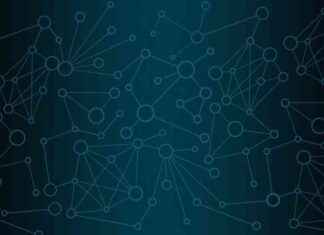Skateboarders in colorful outfits soar on their boards through a skatepark in Amsterdam South, one of the first in the world to offer a safe space for LGBTQ people.
“Skateboarding is for everyone,” reads a banner hanging on the wall as a rainbow logo is painted above wooden railings built into a warehouse in the south of the Dutch capital.
“There’s no judgment,” smiled Tem, 22, wearing a black helmet and t-shirt and blue-and-white checkered pants, before attempting tricks on an ’80s-style board.
The place is “a comfortable environment where I feel like I can learn to skate without the nasty vibe of a public skatepark,” adds Tem.
Despite its image as an alternative sport of baggy-pants rebels, skateboarding suffers from issues related to sexism, homophobia and a sometimes macho culture.
It’s no surprise, then, that the Netherlands – the first country in the world to legalize same-sex marriage in 2001 and renowned for its liberal attitudes – offers an alternative.
“I feel like I have the space to be myself and to skate and have fun with friends, that’s all we want,” skatepark manager Flip told AFP. Zonne Zuijderland, 25 years old.
The origins of the skatepark, a collaboration between the organizations Women Skate the World and New Wave, lie in impromptu skate sessions during the first summer of the Covid-19 pandemic.
“It started with a group chat like ‘hey everyone, there’s a bunch of queer people skating in an outdoor park, who wants to come’. It started with ten people and within a few months, we were around 40”, says Zonne Zuijderland.
When winter arrived, the group started to organize two parties a month at the “Noord” skatepark, on the other side of the capital. But it was “far too little”.
Thanks to donations and grants, the organizations have found an empty warehouse and created a safe space there for a rising generation of skateboarders who might otherwise be put off by an “aggressive group”, says Zonne Zuijderland.
While female and LGBT athletes are increasingly accepted in skateboarding, especially after veteran American pro Brian Anderson came out in 2016, the sport still has a long way to go.
“Because I’m trans, when I still identified as a girl, I even received applause because I managed to get on a board. I never felt taken seriously,” says Zonne Zuijderland, also an actor and filmmaker.
But the park isn’t just for LGBTQ people and women, even though that was the original idea.
“Respect is the biggest goal,” regardless of gender, he adds.
The place also offers “skate buddies” to help teach the basics of the sport – ollies, shove-its and kickflips – away from the “intimidating” atmosphere of traditional skate parks.
NGOs have already promoted skateboarding for women in countries like Afghanistan and the Palestinian Territories, but not for LGBTQ skateboarders.
“I hope that in a few years it will no longer be a unique concept, or that it will no longer be necessary”, comments Mr. Zuijderland. “Until then, we are here.”
08/16/2023 17:24:46 – Amsterdam (AFP) – © 2023 AFP







